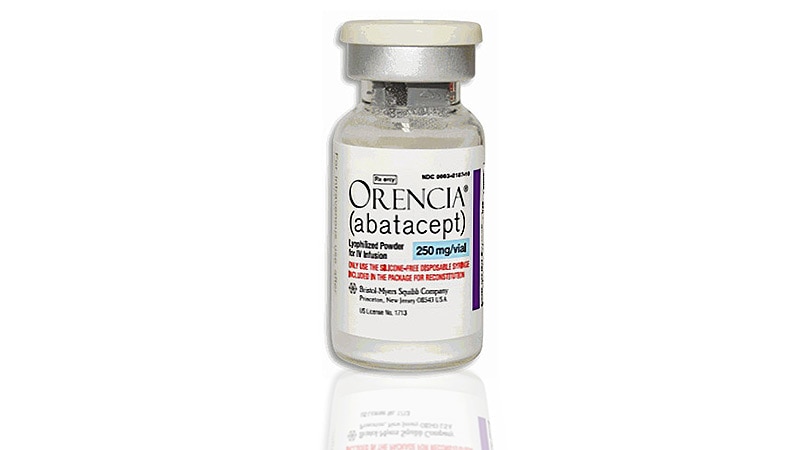The US Food and Drug Administration (FDA) today approved abatacept (Orencia) in combination with immunosuppressants for the prevention of acute graft-vs-host disease (aGVHD) in adults and pediatric patients undergoing hematopoietic stem cell transplantation from an unrelated donor.
Abatacept is the first drug approved for aGVHD prevention and incorporates real-world evidence as one component of the evaluation of clinical effectiveness, according to the FDA.
Abatacept was originally approved in 2005 for the treatment of adult rheumatoid arthritis; it is also approved for the treatment of polyarticular juvenile idiopathic arthritis and adult psoriatic arthritis.
“Acute graft-vs-host disease can affect different parts of the body and become a serious post-transplant complication,” said Richard Pazdur, MD, acting director of the Office of Oncologic Diseases in the FDA’s Center for Drug Evaluation and Research. “By potentially preventing the disease, more patients may successfully undergo bone marrow or stem cell transplantation with fewer complications.”
The safety and efficacy of abatacept were evaluated in two separate studies. The drug was used in patients aged 6 years and older who underwent stem cell transplantation from a matched or mismatched unrelated donor.
In the double-blind, placebo-controlled GVHD-1 trial, 186 patients underwent stem cell transplantation from a matched unrelated donor and randomly received abatacept or a placebo in combination with the immunosuppressive drugs.
The study measured severe (grade III-IV) aGVHD-free survival, overall survival, and moderate-severe (grade II-IV) aGVHD-free survival 6 months after transplantation.
Severe aGVHD-survival was not significantly improved with abatacept compared to placebo, per the FDA press statement.
However, overall survival was improved (97% vs 84%) and so was moderate-severe aGVHD-free survival (50% vs 32%).
Additional evidence of effectiveness was provided by GVHD-2, a registry-based clinical study conducted using real-world data from the Center for International Blood and Marrow Transplant Research in patients who underwent stem cell transplantation from a mismatched unrelated donor.
This study compared outcomes in 54 patients treated with abatacept, in combination with standard immunosuppressive drugs, vs 162 patients treated with standard immunosuppressive drugs alone.
The 6-month overall survival rate was 98% with abatacept vs 75% for immunosuppression alone.
The most common side effects of abatacept for prevention of aGVHD include anemia, hypertension, cytomegalovirus (CMV) reactivation/CMV infection, fever, pneumonia, nosebleed, decreased levels of CD4 lymphocytes, increased levels of magnesium in the blood, and acute kidney injury.
Patients who receive abatacept should be monitored for Epstein-Barr virus reactivation and receive related preventive medication before starting treatment and for 6 months post transplantation. They should also be monitored for CMV infection/reactivation for 6 months post transplant.
Real-world evidence is routinely collected healthcare data from a variety of sources, including registry data. There are “significant” ongoing efforts at the FDA to incorporate use of related high-quality evidence from such sources to support regulatory decision-making, said the agency.
Abatacept received the FDA’s breakthrough, orphan drug, and priority review designations for this indication.
For more from Medscape Oncology, join us on Twitter and Facebook.

